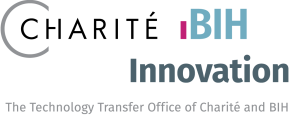In 2020, NeuroCure and SPARK-BIH joined forces to identify high potential translational projects from the NeuroCure community to be part in the SPARK-BIH program. The Cluster of Excellence NeuroCure at the Charité – Universitätsmedizin Berlin has the aim to explore and understand the mechanisms of diseases of the central nervous system to find potential new therapies for neurological and psychiatric disorders. The SPARK project management and mentoring program is now providing advice and support to NeuroCure scientists on projects that could potentially lead to clinically relevant neuroscientific therapies, diagnoses, and devices. The four selected NeuroCure/SPARK-BIH teams receive funding from NeuroCure and mentoring as well as support from the SPARK-BIH program to accelerate their translational projects into outstanding medical solutions. The funding of the four NeuroCure/SPARK-BIH teams has now been renewed for another funding period in 2022, giving the teams resources and mentoring to further advance their medical innovations.
The following four projects from the NeuroCure Cluster of Excellence have been selected to receive funding and mentoring from NeuroCure/SPARK-BIH:
XL-MyoCure - Novel therapy for neuromuscular disease caused by mutations in myotubularins
Prof. Dr. Volker Haucke
The team develops a new pharmacological therapy for a rare neuromuscular disease (XLMTM: X-linked myotubularmyopathy). Patients affected by this disease suffer from muscle weakness and are dependent on a wheelchair, artificial nutrition, and ventilators. Though the disease is often lethal, there are currently no treatment options.
iPSC-SYNGAP - Screening for novel modulators that restore synaptic signaling in human iPSC-derived neurons from SYNGAP syndrome patients
Prof. Dr. Dietmar Schmitz, Prof. Dr. Markus Schülke-Gerstenfeld, Prof. Dr. Sarah Shoichet, Dr. Nils Rademacher, Judith von Sivers
The team develops a new treatment for patients with SYNGAP syndrome — a genetic disease in which patients can suffer up to 140 epileptic seizures per day. The goal of this project is to build the screening platform that the team has developed to find a pharmacological treatment. Induced pluripotent stem cells (iPSC) from patients will also be used to verify efficacy.
BENEFIT - Biomarkers for tumor immune therapy associated neurological side effects
Prof. Dr. Matthias Endres, PD Dr. Wolfgang Böhmerle, Dr. Samuel Knauß, PD Dr. Petra Hühnchen, Dr. Leonie Müller-Jensen
The aim of the project BENEFIT is to identify biomarkers for the occurrence of neuronal side effects in immune checkpoint inhibitor cancer therapy. A targeted diagnosis can improve treatment and prevent potentially fatal disease progression.
NEMATIS - Neuronal mapping using transcranial magnetic temporal interference stimulation
Prof. Dr. Surjo Soekadar, Prof. Dr. Dr. Andreas Heinz, Khaled Nasr
The team is developing a medical device that will enable non-invasive, precise stimulation capable of reaching deeper areas of the brainfor treatment of neurological or psychiatric disorders.


